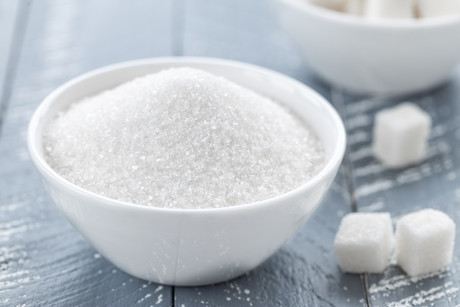Safety concerns for artificial sweetener sucralose

The debate around the safety of artificial sweetener sucralose continues, with new research on mice contradicting claims that it quickly passes through the body unchanged.
Previous research from the European Food Safety Authority concluded sucralose, sold under the name Splenda, was safe, and it gained regulatory approval based on reports it was not broken down in the body. However, a study by researchers from North Carolina State University (NC State) and analytical testing company Avazyme Inc found it is metabolised in the gut and produces at least two fat-soluble compounds.
The researchers administered an average dose of 80.4 mg/kg/day of sucralose to 10 rats for 40 days with a follow-up period of two weeks. They collected urine and faeces samples every 24 hours, and at the end of the follow-up they also tested fatty tissue from a subset of the rats.
“We found two metabolites in urine and faeces throughout the sucralose dosing period,” said Susan Schiffman, an adjunct professor at NC State and co-author of the study. “Those metabolites could still be detected in the urine 11 days after we stopped giving the rats sucralose, and six days after the sucralose itself could no longer be detected.”
The metabolites were easily dissolved in fat, making them more likely to stick around in the body. The researchers also found sucralose in the fatty tissues of rats two weeks after they stopped receiving it, even though it had disappeared from the urine and faeces.
Schiffman noted that the FDA’s approval was based on reports that ingested sucralose was not metabolised, but the industry did not use techniques that targeted the full suite of fat-soluble metabolites.
“Our techniques were more suited to extracting and preserving fat-soluble metabolites. We were also able to use state-of-the-art analytical techniques to identify those metabolites.”
This means the studies submitted to the FDA when seeking approval for sucralose may not have revealed the whole picture. She said the potential health effects of these metabolites are not known and concluded “we feel that it may be time to revisit the safety and regulatory status of sucralose”.
While this is concerning for consumers using sucralose products, natural Stevia-based sweetener brands, such as Natvia, will likely gain in popularity. Natvia said these natural sweeteners “pass through the body intact. This results in a zero calorie sugar alternative that doesn’t raise blood glucose or insulin levels when digested.”
The results were published in the Journal of Toxicology and Environmental Health, Part A.
Maple syrup explored as a potential sugar substitute
The potential health benefits of using pure maple syrup instead of sugar were explored in a...
Regularly eating nuts supports healthy lifespan, research finds
Regular consumption of nuts is associated with maintaining a healthy lifespan, research from a...
Colour supplier GNT recognised for sustainability
The recognition ranks the company among the top 3% in the food manufacturing industry.














